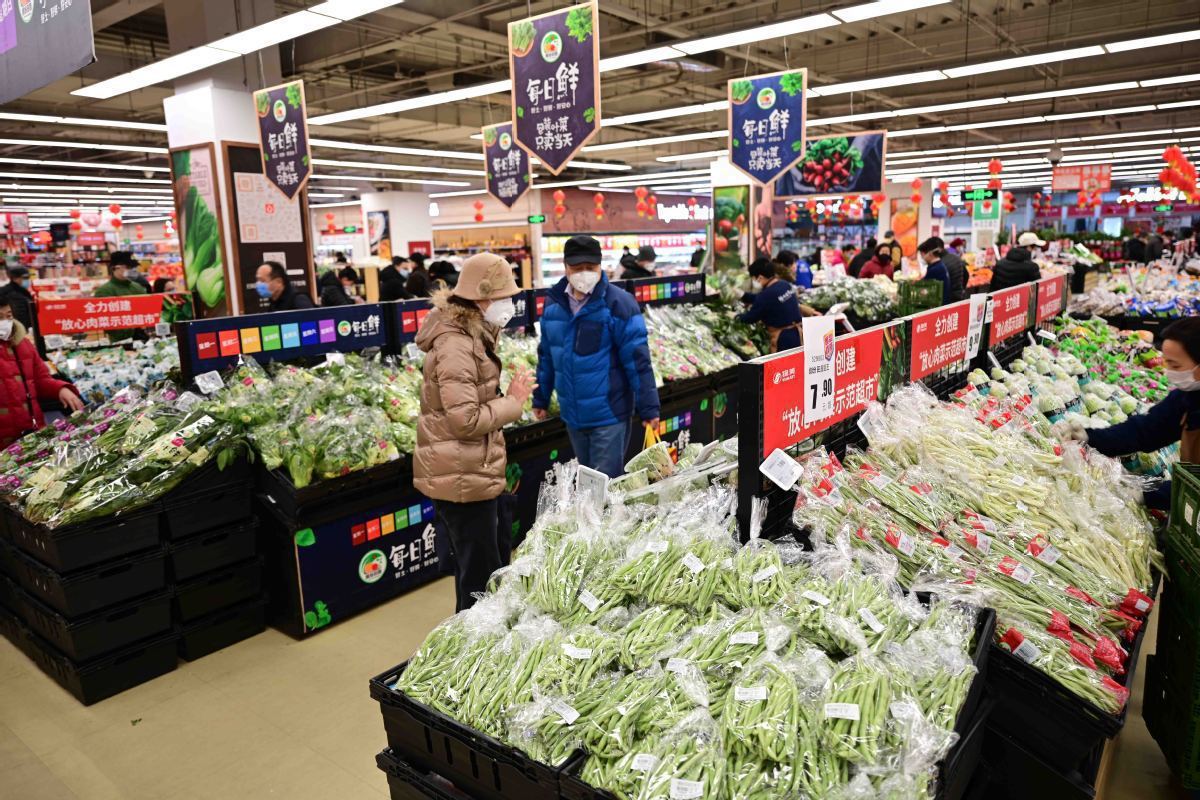
Residents shop in a Wumart store for vegetables and other daily necessities. [Photo provided to chinadaily.com.cn]
A survey on the novel coronavirus outbreak's influence on consumption in Jiangsu province by the Jiangsu Consumer Council indicates that nearly 90 percent of the sampled 21,192 respondents said they will release their suppressed consumption after the epidemic ends, which means there will be a surge in travel, dining out, entertainment, retail, fitness and sports.
It is good to see that people still have a strong desire to spend. That should serve to consolidate the confidence of the catering and retail industries that as long as they can survive the epidemic, much of their losses will be repaid, and the consumption market will rebound.
Brick-and-mortar business owners should not be unduly concerned about people's consumption desires having already been satisfied through e-commerce, as consumption is more than just buying, it is also a social activity in which people interact with each other.
The things people purchase online are generally to meet their basic life needs during the epidemic.
After the epidemic ends, people having been cooped up during self-quarantine period will necessarily go outdoors. The consumption market will thus rebound soon.
Catering and retail businesses should prepare for the arrival of that moment, when the whole economic system-both the supply and demand sides and the logistics system-will resume their normal operations.
However, it is necessary for the government to offer subsidies in various forms to help bail the worst-affected businesses, most of which are small and medium-sized companies, out of their temporary difficulties, and some of the supportive policies should be continued for some time until they have met their expected results.
As the economy has entered the stage of high-quality development, offline consumption has undergone a qualitative change. It is no longer simply a case of buying, it now integrates a higher level of experiential consumption, focusing on satisfying consumers' psychological needs, allowing them to obtain more enjoyment from the process of consumption.
That means that businesses should have confidence in the future consumption rebound and economic recovery.


